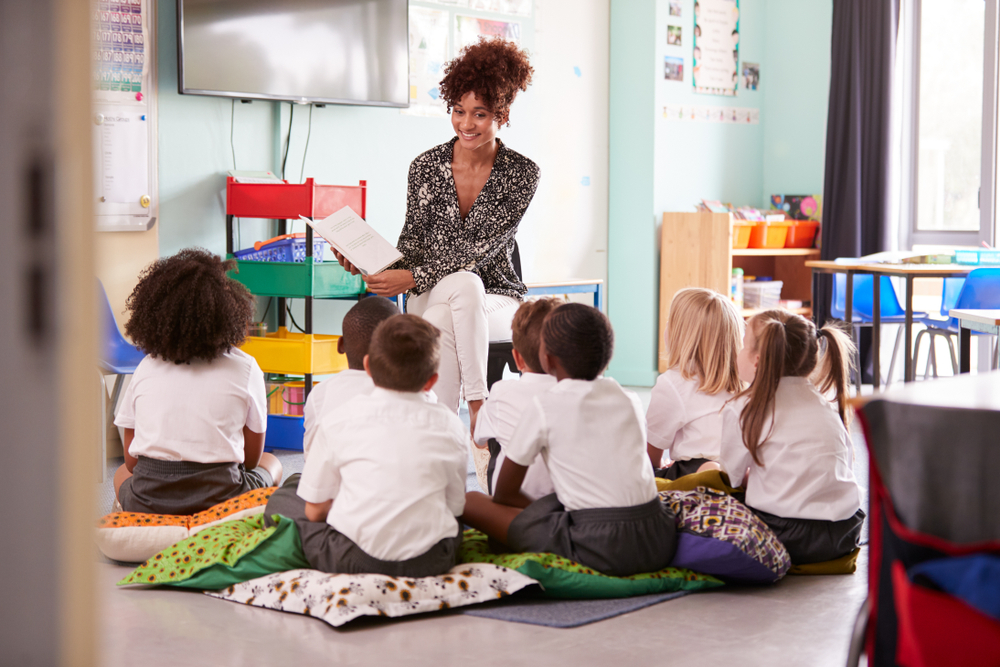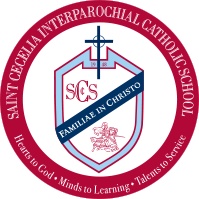The Top 5 Reasons to Choose Private School Instead of Public School
Choosing the right educational path for your child is one of the most important decisions you’ll make as a parent. The debate between private vs. public school continues to spark passionate discussions as parents weigh the unique advantages each option offers. While public schools serve many students well, private school education provides distinct benefits, including smaller class sizes, specialized curricula, stronger community connections, enhanced extracurricular opportunities, and safer learning environments.
Every year, St. Cecelia witnesses firsthand how private school education shapes confident, capable students who thrive in college and beyond. The benefits of private school extend far beyond test scores and graduation rates, touching every aspect of a child’s growth and development. Let’s explore the top five reasons why families choose private school education over public school alternatives.
Interested in St. Cecelia? Check Out Our Enrollment Guide

1. Academic Excellence and Flexible Curriculum
Private schools deliver academic excellence through rigorous, specialized curricula that adapt to student interests and abilities. Unlike public schools bound by standardized state requirements, private institutions have the flexibility to design innovative programs that challenge students while accommodating different learning styles and paces.
The academic advantages of private school education become evident through advanced coursework options, specialized subject areas, and accelerated learning opportunities. Many private schools offer International Baccalaureate (IB) programs and dual enrollment options that allow students to earn college credit while still in high school. This academic flexibility helps students explore their passions deeply while building strong foundations across all subject areas.
Customized Learning Approaches
Private schools excel at tailoring educational approaches to meet individual student needs. Teachers can modify instruction methods, adjust pacing, and provide enrichment activities that match each student’s learning profile. This personalized approach includes:
- Differentiated Instruction: Lessons adapted to various learning styles and abilities
- Accelerated Programs: Opportunities for gifted students to advance at their own pace
- Specialized Curricula: Focus areas like STEM, arts, or classical education
- College Preparation: Comprehensive guidance for standardized tests and college applications
- Real-World Applications: Project-based learning that connects academics to practical skills
Students in private schools often demonstrate higher academic achievement because they receive education specifically designed to challenge and support their individual growth patterns.

2. Smaller Class Sizes and Individual Attention
The most significant advantage of private school education lies in the dramatically reduced student-to-teacher ratios that enable personalized instruction and meaningful relationships. While public schools often struggle with overcrowded classrooms containing 25-30 students or more, private schools typically maintain class sizes between 12-18 students, creating optimal learning environments.
Smaller class sizes transform the educational experience by allowing teachers to know each student personally, understand their learning preferences, and provide targeted support when needed. Students receive immediate feedback on their work, participate more actively in discussions, and develop stronger relationships with their instructors.
This individualized attention proves particularly valuable for students who need extra support in challenging subjects or those who require additional stimulation to stay engaged. Teachers can quickly identify learning gaps, celebrate individual achievements, and adjust their teaching methods to ensure every student succeeds.
Personalized Teacher-Student Relationships
The benefits of smaller class sizes extend beyond academic instruction to include:
- Immediate Feedback: Teachers can provide timely, specific responses to student work
- Increased Participation: Every student has opportunities to contribute to class discussions
- Personal Mentorship: Teachers serve as advisors and mentors for academic and personal growth
- Flexible Pacing: Instruction can slow down or accelerate based on student comprehension
- Individual Recognition: Teachers notice and celebrate each student’s unique contributions
These stronger relationships create supportive learning environments where students feel valued, understood, and motivated to achieve their best.

3. Strong Sense of Community and Parental Involvement
Private schools foster tight-knit communities that bring together families, students, and staff around shared values and educational goals. This values-centered approach creates environments where everyone works collaboratively to support student success and character development.
Parental involvement flourishes in private school settings because families choose to be part of the community and invest actively in their children’s education. Parents participate in school governance, volunteer for events, and build lasting relationships with other families who share similar educational philosophies and commitment levels.
The sense of community extends beyond the school walls, creating networks of support that benefit families for years to come. Students develop friendships with peers whose families share similar values, while parents connect with other adults who prioritize education and character development.
Building Lifelong Connections
Strong school communities provide numerous advantages for families:
- Shared Values: Alignment between home and school reinforces important life lessons that are grounded in the Catholic faith
- Active Participation: Parents engage meaningfully in their children’s educational journey
- Network Building: Families form lasting friendships and professional connections
- Tradition and Legacy: Multi-generational relationships strengthen community bonds
- Support Systems: Families help each other through challenges and celebrate successes together
This community foundation creates stability and continuity that supports students throughout their academic careers and beyond.

4. Enriched Extracurricular and Leadership Opportunities
Private schools provide extensive extracurricular programs that allow students to explore interests, develop talents, and build leadership skills without facing the intense competition common in larger public schools. The smaller student body means more opportunities for participation and leadership roles across various activities.
Student life at St. Cecelia encourages participation in clubs, sports teams, and creative activities while still maintaining their academic focus. This variety helps young people discover their passions, develop new skills, and build the well-rounded profiles that colleges and future employers highly value.
The leadership opportunities available in private schools help students develop confidence, communication skills, and organizational abilities that serve them throughout life. Whether leading student government, captaining sports teams, or organizing service projects, students gain practical experience in problem-solving, decision-making, and team management.
Diverse Activity Options
Private schools typically offer robust programs, including:
- Competitive Sports: Teams in multiple seasons with opportunities for all skill levels
- Creative Arts: Theater, music, visual arts, and creative writing programs
- Academic Clubs: Debate, science fairs, academic bowls, and subject-specific organizations
- Service Learning: Community service projects and social justice initiatives
- Leadership Programs: Student government, peer mentoring, and event planning opportunities
These diverse options ensure that every student finds activities that match their interests and help them grow as individuals.

5. Safe, Supportive Learning Environments
Private schools prioritize creating safe, nurturing study environments where students can focus on learning and personal growth without distractions or safety concerns. The emphasis on character education, mutual respect, and clear behavioral expectations creates classroom atmospheres conducive to academic achievement and positive social interactions.
Smaller school communities make it easier to identify and address potential issues before they become serious problems. Teachers and administrators know students well enough to notice changes in behavior, academic performance, or social interactions that might indicate underlying concerns.
Private schools also maintain high standards for student conduct, creating cultures of respect and responsibility that support both academic and personal development. Clear expectations, consistent enforcement, and positive reinforcement help students develop self-discipline and good judgment.
Comprehensive Support Systems
Safe learning environments in private schools include:
- Character Education: Programs that teach values, ethics, and personal responsibility
- Conflict Resolution: Structured approaches to handling disagreements and social challenges
- Counseling Services: Academic and personal guidance from qualified professionals
- Clear Policies: Well-communicated expectations for behavior and academic performance
- Positive Culture: Emphasis on kindness, respect, and mutual support among all community members
These comprehensive support systems help students develop into confident, capable individuals who contribute positively to their communities.

Making the Right Choice for Your Family
The decision between private vs. public school ultimately depends on your family’s priorities, values, and individual circumstances. However, the consistent advantages offered by private school education—academic excellence, personalized attention, strong community, enriched opportunities, and safe environments—create compelling reasons for many families to choose this path.
Private schools provide educational experiences that prepare students not just for academic success, but for meaningful lives as engaged citizens and leaders. The relationships, skills, and values developed in these supportive communities serve students throughout their college years and professional careers.
When evaluating the benefits of private school education, consider how these advantages align with your child’s needs, your family’s educational philosophy, and your long-term goals for their development. The investment in private school education often pays dividends that extend far beyond the classroom, shaping character and opening doors that influence entire life trajectories.
Ready to Explore the Advantages of Catholic School Education?
St. Cecelia Interparochial Catholic School in Clearwater, Florida, combines academic excellence with strong faith-based foundations to prepare students for success in all areas of life. Give us a call to schedule a campus tour and experience our supportive community firsthand.

About Us
St. Cecelia Interparochial Catholic School (SCS) offers an academically challenging and globally minded interdisciplinary education to children in PreK-3 through 8th grade.
Contact Us
1350 Court Street
Clearwater, FL 33756
Phone: 727-461-1200
Fax: 727-446-9140
Admissions: 727-461-1207
Extended Day: 727-385-4851
(3:30-6:00pm)
Quick Links
© Copyright 2015 Saint Cecelia Interparochial Catholic School. Website designed and developed by BayshoreSolutions.


